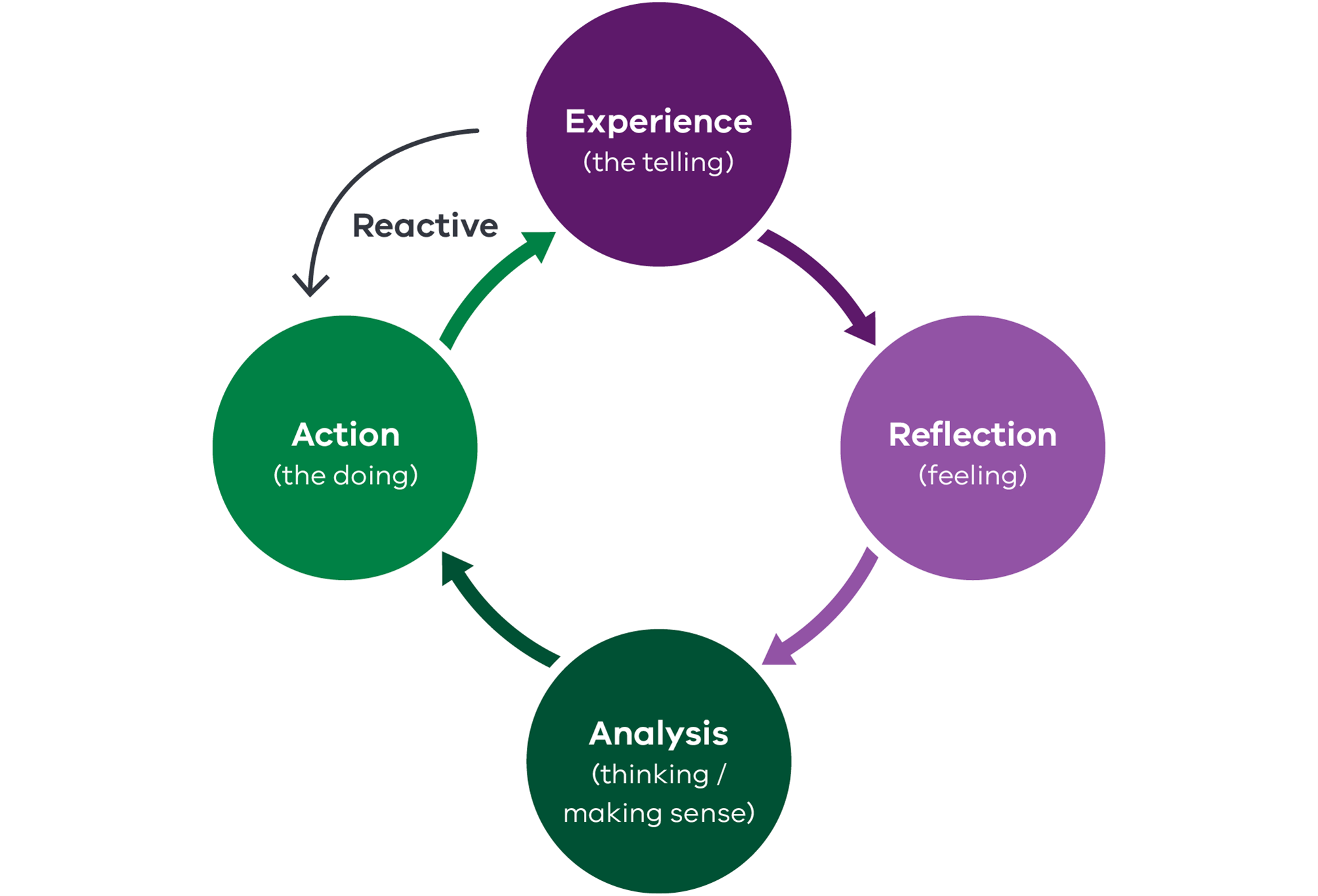In its simplest form, reflection is a ‘state of mind’,[1] rather than a technique. It prompts us to pause and notice, and then consider the meaning of what we noticed.[2] It is a continuous, cyclical process which contributes to self-awareness and professional learning (see Figure 1 below). Reflection encourages staff to consider their impact on others, including clients and colleagues. It assists staff to monitor the wellbeing of others and encourages organisational and collective care of the workforce. It is a bridge between theory and practice and improves decision-making. Learning, rather than problem solving, is the primary focus.[3]
Reflection features:
- active listening, sitting with silence and the discomfort of not always knowing
- a stance of curiosity
- open questions to make sense of situations and to support knowledge for decision-making
- empathy and non-judgement to work through complex issues, emotions and reactions in a safe-enough space
- vulnerability, allowing participants to ease the need to always appear self-reliant and strong
- a critical approach and ‘sitting outside’ our personal experience to notice how the system might be experienced by others.[4]
Figure 1: KOLB reflective learning cycle[5]
This reflective learning cycle provides the ‘how’ of the reflective supervision. The idea is to regularly reflect on all four learning processes (experience, reflection, analysis and action), moving from surface to depth and shifting between them, as required.[6] It assists supervisees and supervisors to unpack an experience and better understand it. The goal is to be less reactive, learn from reflection and improve decision making. The model can be used to process various experiences. These might include conflict with other professionals, case practice with clients and the dynamics experienced in the supervisory relationship.
References
[1] G Bolton, ‘Reflective practice: an introduction’, in G Bolton and R Delderfield (eds), Reflective practice in writing for professional development, 2nd edn, Sage, London, 2009.
[2] Hewson and Carroll, Reflective Practice in Supervision.
[3] Hewson and Carroll, Reflective Practice in Supervision.
[4] Hewson and Carroll, Reflective Practice in Supervision.
[5] Kolb, Experiential learning: experience as the source of learning and development.
[6] Department of Human Services, Leading practice: a resource guide for child protection leaders.
Updated


